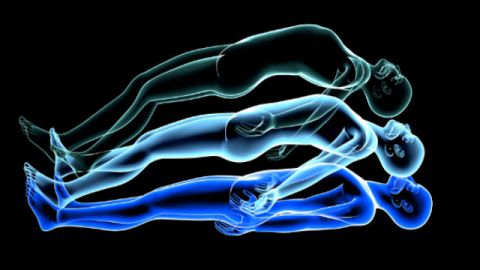Post 7: Buddhism is Non-Science Reincarnate (And An Aside On Heredity)

Reincarnation, like heaven, is at least partly attractive to some of its adherents because it allows for the wish-thinking away of the fear of death.
When the conversation about reincarnation came up with my family (as discussed in post 1), the Buddhist moral blackmail dictated that it went without saying that social and intellectual grace should lead me not to speak up when someone proffered proof of reincarnation based on an unnamed documentary about a student finding a baby whom he believes to be the reincarnation of his Roshi. (Actually, since I did speak up, it went with quite a lot of saying. It is always a chilling mark when you are told not that what you are saying is incorrect, but that saying it is itself incorrect.)
The knockdown proof in the documentary? The baby is drawn to some of the objects which had importance to his supposed former bodily form.
There is of course no way that this anecdote could have been misrepresented. There are no grounds on which the sterility of the laboratory conditions under which this ultra-scientific test had been performed could be questioned. So that’s it, we’ve figured it out; Reincarnation is true. The documentary said so!
To give away my whole game, I must admit that I am hostile to the idea of reincarnation not just because it doesn’t happen to be true, but also because I am one of the not that rare people to whom the urge to survive one’s own death has always been unattractive. I am pleased to be alive, but ultimately wish for annihilation over immortality. I’m not alone in that.
Now, I am aware that the majority of Buddhists, particularly Western Buddhists, do not specifically faithfully believe in reincarnation or even karma. So, why am I bothering to attack the idea?
Well, my issue is that by treating an ideology as inherently “nice” and “above it all”, people do become sympathetic to whatever claims in that methodology, including unscientific ones. That is what I think was at play that made my family so credulous of a documentary. It is also what I think is at play in the pseudo-scientific “medical benefits” marketing in so many spas and yoga studios and whole foods store and athletic apparel stores.
So once again we see the creeping power of fanatacism over reason, even in the most well-meaning and non-prescriptive religious dogma.
Sidebar:
Regarding the finding and crowning of babies as dead old masters, I am anyway baffled that the idea of picking an infant because of it’s inherent superiority of wisdom based on its (spiritual) heredity is attractive to Westerners.
Granted, when the present leader of Tibetan Buddhism is not embarrassing himself by suggesting that the situation of nuclear proliferation between India and Pakistan is a tenable one, or declaring the moronic action “star” Steven Seagal (!) to be a person of high enlightenment, he is clearly a wise and ironic and kind and well-meaning man.
But, a lack of benevolence is not what makes hereditary, lifelong monarchy problematic. The harmlessness of the present British Monarchy does not make her profiting off of their birth any less backwards and thieving.





